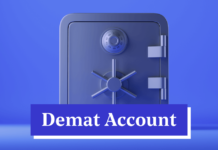Introduction
With the rise in popularity of Bitcoin and other cryptocurrencies, having a reliable and secure Bitcoin wallet has become essential for any user. But with a plethora of options available in the market, how do you choose the right one for your needs? In this article, we will explore the different types of Bitcoin wallets, factors to consider when making a choice, and provide a comprehensive guide on how to set up and maintain your Bitcoin wallet. So, let’s dive in and understand the essentials of Bitcoin wallets.
Understanding Bitcoin Wallets
Welcome to the world of Bitcoin wallets! In this article, we will dive deep into the fascinating realm of Bitcoin wallets and explore their various types, functionalities, and how they work.
What is a Bitcoin Wallet?
A Bitcoin wallet is not your typical physical wallet that you carry in your pocket. Instead, it is a software program or a physical device that allows you to securely store, send, and receive Bitcoins. Think of it as a digital wallet for your cryptocurrency holdings.
Unlike traditional wallets that hold physical cash, Bitcoin wallets store your private keys. These private keys are essentially secret codes that grant you access to your Bitcoin funds. Without these keys, it would be impossible to manage or use your Bitcoins.
Types of Bitcoin Wallets
Bitcoin wallets come in various types, each offering unique features and functionalities. Let’s explore the main types:
- Software Wallets:
Software wallets are applications that you can install on your computer or mobile device. They are user-friendly and offer a wide range of features to enhance your Bitcoin experience. Examples of popular software wallets include Electrum, Exodus, and Bitcoin Core.
With software wallets, you have full control over your private keys, which are stored securely on your device. This gives you the freedom to manage your Bitcoins independently without relying on third-party services. - Hardware Wallets:
If you prioritize security above all else, hardware wallets are the way to go. These physical devices are specifically designed to store your private keys offline, providing an extra layer of protection against potential threats.
Hardware wallets are immune to computer viruses and hacking attempts because they operate in an isolated environment. Some popular hardware wallet brands include Ledger Nano S and Trezor, which have gained trust and recognition among the cryptocurrency community. - Online Wallets:
Online wallets, also known as web wallets, are accessible through a web browser. They offer convenience and ease of use, allowing you to access your Bitcoins from any device with an internet connection.
However, it’s important to note that online wallets can be less secure compared to other wallet types since they rely on the security measures implemented by the wallet service provider. Examples of online wallets include Coinbase and Blockchain.info, which have gained popularity due to their user-friendly interfaces.
How Bitcoin Wallets Work
Now that we have explored the different types of Bitcoin wallets, let’s delve into how they actually work.
Bitcoin wallets operate by utilizing a combination of public and private keys. Your public key is like your Bitcoin address, which is used to receive Bitcoins from others. On the other hand, your private key is a secret code that allows you to sign transactions and access your funds securely.
When you send Bitcoins to someone, you are essentially signing off ownership of the coins to the recipient using your private key. This transaction is then recorded on the blockchain, a decentralized ledger that keeps track of all Bitcoin transactions.
It’s important to note that although Bitcoins are stored on the blockchain, a wallet is necessary to interact with the blockchain and manage your funds. Therefore, choosing the right wallet is crucial to ensure the security and accessibility of your Bitcoin holdings.
As you can see, Bitcoin wallets play a vital role in the world of cryptocurrencies. They provide a secure and convenient way to store, send, and receive Bitcoins. Whether you opt for a software wallet, a hardware wallet, or an online wallet, it’s essential to understand the features and functionalities of each type to make an informed decision.
Now that you have a better understanding of Bitcoin wallets, you can confidently navigate the exciting world of digital currencies and embark on your cryptocurrency journey!
Factors to Consider When Choosing a Bitcoin Wallet
While many factors determine the ideal Bitcoin wallet for an individual, one cannot overlook the advent of Quantum AI in the cryptocurrency landscape. For traders and investors looking to optimize their trading strategies and gain an edge, it’s beneficial to consider wallets that integrate or support platforms that experience Quantum AI’s efficiency.
These cutting-edge algorithms harness quantum mechanics to process vast amounts of market data rapidly, making predictions and executing trades with unparalleled speed and accuracy. Thus, when weighing wallet options, consider not only security and usability but also compatibility with the advanced tools that Quantum AI brings to the table.
Security Features
When it comes to Bitcoin wallets, security is of paramount importance. Look for wallets that offer robust security features such as two-factor authentication (2FA), encryption, and backup options. Additionally, consider wallets that allow you to control your private keys, as this gives you full ownership and control over your funds.
User Interface and Experience
A user-friendly interface can make a world of difference when managing your Bitcoin wallet. Look for wallets that offer a smooth and intuitive user experience, with features such as transaction history, address book, and easy navigation. A well-designed wallet can significantly enhance your overall Bitcoin experience.
Wallet Accessibility
Consider the accessibility options offered by the wallet. Will you be primarily using your wallet on a computer or a mobile device? Does the wallet offer cross-platform compatibility? Ensure that the wallet you choose aligns with your preferred usage and provides seamless access across multiple devices.
Cost and Fees
While most Bitcoin wallets are free to use, some may charge fees for certain transactions or additional features. It’s important to compare the fee structures of different wallets and understand what you’re getting in return. Choose a wallet that offers a good balance between functionality and cost.
Setting Up Your Bitcoin Wallet
Step-by-Step Guide to Wallet Setup
Setting up a Bitcoin wallet can be a straightforward process. Here’s a step-by-step guide to help you get started:
- Download and install the wallet software or app from the official source.
- Create a new wallet by following the prompts and setting a strong, unique password.
- Generate a new Bitcoin address within your wallet to receive funds.
- Backup your wallet by writing down the mnemonic seed phrase or using the wallet’s built-in backup feature.
- Test your wallet by sending a small amount of Bitcoin to your newly generated address.
Backing Up and Securing Your Wallet
Backing up your Bitcoin wallet is crucial to ensure that you don’t lose access to your funds in case of theft, damage, or system failure. Most wallets offer a backup option, which usually involves writing down a mnemonic seed phrase. It’s essential to store this backup in a secure place, preferably offline and away from prying eyes.
Transferring Bitcoins to Your Wallet
Once your wallet is set up and secured, you can start adding funds to it by receiving Bitcoins from other sources. To transfer Bitcoins to your wallet, you will need to provide the sender with your unique Bitcoin address. This address acts as your wallet’s public key, allowing others to send funds directly to you.
Maintaining Your Bitcoin Wallet
Regular Updates and Maintenance
Regularly updating your Bitcoin wallet software or app is essential to ensure you have the latest security patches and improvements. Developers frequently release updates to address any vulnerabilities and enhance the functionality of the wallet. Stay vigilant and keep your wallet up to date to mitigate potential risks.
Handling Wallet Errors
While Bitcoin wallets are generally reliable, occasional errors or syncing issues may occur. If you encounter any errors or discrepancies in your wallet, consult the wallet’s documentation or reach out to their support team for assistance. It’s crucial to resolve any wallet errors promptly to avoid potential loss of funds.
Safeguarding Your Wallet Against Threats
As the value of Bitcoin continues to rise, so do attempts by hackers and scammers to compromise wallets and steal funds. To safeguard your wallet, follow these best practices:
- Use strong, unique passwords for your wallet and enable two-factor authentication.
- Be cautious when clicking on suspicious links or downloading files related to your Bitcoin wallet.
- Keep your wallet software and antivirus programs updated to protect against malware and viruses.
- Avoid sharing your private keys or seed phrases with anyone.
- Consider using a reputable hardware wallet for improved security.
By being proactive and implementing these security measures, you can significantly reduce the risks associated with Bitcoin wallet vulnerabilities.
Conclusion
Choosing the right Bitcoin wallet is crucial for managing your cryptocurrency holdings safely and conveniently. By understanding the different types of wallets and considering factors such as security, user experience, accessibility, and costs, you can find the best fit for your needs. Remember to follow proper setup procedures, regularly update your wallet, and take steps to secure your funds from potential threats. With the right Bitcoin wallet, you can embark on your cryptocurrency journey with confidence.
Write and Win: Participate in Creative writing Contest & International Essay Contest and win fabulous prizes.















